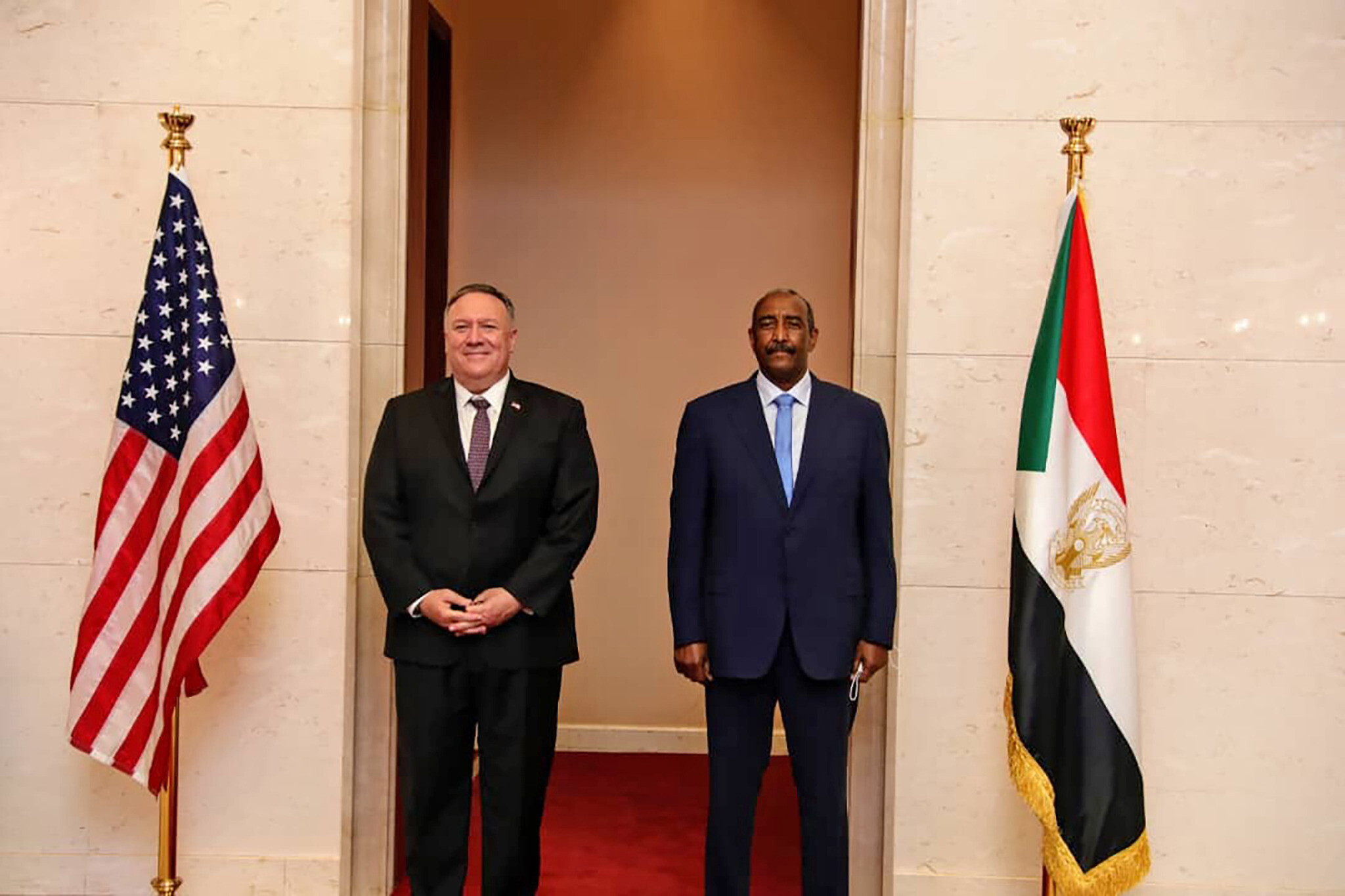A former Sudanese MP has said he is attempting to organize a civilian delegation of Sudanese citizens to visit Israel in an effort to accelerate the normalization process between the two countries.
The delegation’s organizer, Abu Al-Qasim Bortom, said in an interview with The Times of Israel that the delegation is an effort “to break the psychological barrier” between the two nations.
Following the historic normalization agreements between Israel, the United Arab Emirates and Bahrain signed in a White House ceremony last month, there has been much speculation that Sudan will be the next Muslim country to normalize relations with the Jewish state.
Bortom said that the delegation plans to focus on building what he called “cultural-humanistic” ties between ordinary citizens, as opposed to political or economic ones.
“This delegation is not about politics, or about business. It is about encouraging our government to accelerate normalization with Israel. We want to help our government take more serious steps towards normalization,” Bortom said.
Bortom was an independent opposition member of the Sudanese parliament for four years during the reign of dictator Omar al-Bashir. He left politics in 2019 after millions of Sudanese demonstrators toppled al-Bashir’s government, widely considered one of the world’s most repressive regimes.
In the interview, Bortom stressed that the issue between the two nations had nothing to with religion or ideology and that he was “completely convinced that the issue with Israel is political.”
“I always tell people, I think the Qu’ran calls for normalization with Israel and with the Jews. It says that we can eat from their food and marry their people,” Bortom said. “Our religion does not call for enmity with Israel or the Jews.”
“There is popular support for normalization,” Bortom continued. “The average Sudanese person has no problem with having open ties with Israel. This isn’t my opinion, but rather the opinion of many Sudanese.”

US Secretary of State Mike Pompeo stands with Sudanese Gen. Abdel-Fattah Burhan, the head of the ruling sovereign council, in Khartoum, Sudan, Tuesday, Aug. 25, 2020. (Sudanese Cabinet via AP)
For their arrival in Israel, Bortom told that he had been in touch with a number of Israeli NGOs and that they “all welcomed this [proposed] visit.” But he emphasized that no officials — whether Israeli or Sudanese — had contacted him about the move.
“We’ve submitted our pleas and are waiting to hear from the other side. If they’ll welcome us, I mean,” Bortom said.
It was not immediately clear whether the delegation could go ahead without an okay from Sudan’s leadership.
Over 1,000 Sudanese had contacted Bortom in an attempt to join his delegation, the ex-parliamentarian said. He called the large number of Sudanese citizens interested in being part of the delegation proof that the idea of normalization with the Jewish state enjoyed the support of the ordinary people of Sudan.
Since the revolution, Sudan has had both a military head of state, Gen. Abdel Fattah al-Burhan, and a civilian leader, Prime Minister Abadalla Hamdok. Bortom seemingly blamed Hamdok and other civilian parties for the country’s reluctance to normalize ties.
“Back before the revolution, Omar al-Bashir was against Israel. Now it’s Hamdok and the Communist Party,” Bortom said. “The same enmity, with different forms. The Sudanese political elite is still following the same path.”
Hamdok has been considerably more hesitant to normalize than his counterparts in the military, including Burhan. The civilian prime minister has repeatedly insisted that his government does not have a mandate to negotiate relations with Israel.
The question of normalization, Hamdok said at a press conference in Khartoum in August, required “a deep discussion [in Sudan’s] society.”
Earlier this month, Sudanese deputy head of state Gen. Mohammad Hamdan Daglo said that his country would likely soon establish ties of some nature with Jerusalem, saying that Khartoum needed Israel and would benefit from relations.
“Israel is developed. The entire world works with Israel. For development, for agriculture — we need Israel,” he said in an interview with Sudan24 TV.

Sudanese deputy head of state Mohammad Hamdan Dagalo, popularly known as Hemedti, discusses normalization with Israel in Juba, South Sudan (Screenshot: Youtube)
However, Daglo said the ties would fall short of full normalization, out of solidarity with the Palestinians.
Daglo’s remarks came against the background of a United States-led efforts to pressure Sudan into normalizing ties with Israel in exchange for a commitment of financial aid and its removal from a US blacklist of state sponsors of terror; its position on the blacklist subjects it to crippling economic sanctions.
Israeli officials have long expressed a wish for better relations with Khartoum, the birthplace of the Arab League’s famous 1967 resolution against peace and normalization with Israel. The administration of US President Donald Trump, for its part, has reportedly sought to achieve another foreign policy win before the upcoming presidential elections in November.
Aaron Boxerman contributed reporting.
 RSS Feed
RSS Feed















 October 15th, 2020
October 15th, 2020  Awake Goy
Awake Goy  Posted in
Posted in  Tags:
Tags: 













